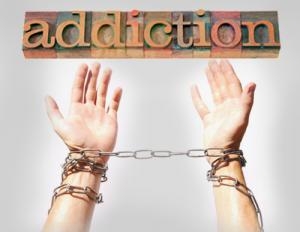
نوروفیدبک برای اعتیاد به مواد مخدر: بهبود سلامت روحی و وسوسه و لغزش
چكيده: بهبود روان شناختي بيماران مبتلا به اختلالات مصرف مواد پس از درمان نوروفيدبك گزارش شده است. با این حال، نوروفیدبک به عنوان یک درمان برای وابستگی به مواد معمول پذیرفته نشده است. اين مطالعه به منظور بررسی اثربخشی اين روش درمانی برای اختلال وابستگی به مواد مخدر انجام شد. هدف خاص این بود که بررسی کنیم که آیا درمان منجر به تغییر در سلامت روان و وسوسه لغزش در افراد می شود. در این مطالعه تجربی با طرح پیش آزمون پس آزمون 20 بیمار وابسته به مواد مخدر تحت درمان با متادون یا بوپرنورفین مورد بررسی قرار گرفتند و به دو گروه تقسیم شدند. در حالی که هر دو گروه تجربی و کنترل تحت درمان معمول خود قرار گرفتند، گروه تجربی 30 جلسه درمان نوروفیدبک دریافت کردند. درمان نوروفیدبک شامل تمرین ریتم حرکتی حسی در Cz بود که به دنبال پروتکل آلفا تتا در مورد Pz بود. داده ها از پرسشنامه سلامت عمومی و پرسشنامه اشتیاق هروئین قبل و بعد از درمان جمع آوری شد. تجزیه و تحلیل چند متغیره کواریانس نشان داد که گروه تجربی بهبود علائم جسمانی، افسردگی و نمره کل سلامت عمومی و وقوع نتایج مثبت در تمایل به استفاده از مواد مخدر، و تسکین وسوسه و لغزش در مقایسه با گروه کنترل را به دست آورد. این مطالعه اثربخشی نوروفیدبک را به عنوان یک روش درمانی در اختلال وابستگی به مواد مخدر در مکمل داروها، تأیید می کند.
Neurofeedback Training for Opiate Addiction: Improvement of Mental Health and Craving
Abstract: Psychological improvements in patients with substance use disorders have been reported after neurofeedback treatment. However, neurofeedback has not been commonly accepted as a treatment for substance dependence. This study was carried out to examine the effectiveness of this therapeutic method for opiate dependence disorder. The specific aim was to investigate whether treatment leads to any changes in mental health and substance craving. In this experimental study with a pre-post test design, 20 opiate dependent patients undergoing Methadone or Buprenorphine maintenance treatment were examined and matched and randomized into two groups. While both experimental and control groups received their usual maintenance treatment, the experimental group received 30 sessions of neurofeedback treatment in addition. The neurofeedback treatment consisted of sensory motor rhythm training on Cz, followed by an alpha-theta protocol on Pz. Data from the general health questionnaire and a heroin craving questionnaire were collected before and after treatment. Multivariate analysis of covariance showed that the experimental group achieved improvement in somatic symptoms, depression, and total score in general mental health; and in anticipation of positive outcome, desire to use opioid, and relief from withdrawal of craving in comparison with the control group. The study supports the effectiveness of neurofeedback training as a therapeutic method in opiate dependence disorder, in supplement to pharmacotherapy.